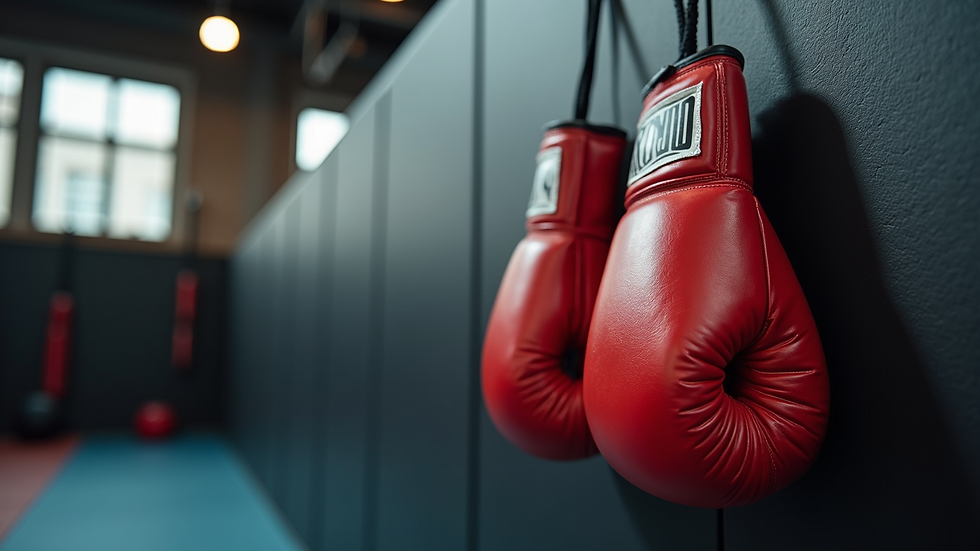The Fundamentals of Martial Arts for Beginners
- Jon Green 6th Dan

- Jun 13, 2025
- 4 min read
Martial arts have captivated people for centuries, providing both physical and mental benefits. For beginners, starting this journey can feel overwhelming with various styles to choose from and countless techniques to learn. This guide will break down the fundamentals so that you can comfortably step into the world of martial arts.
Understanding Martial Arts
Martial arts refer to various combat practices and systems, typically derived from traditions of warfare. From Karate and Taekwondo, to Brazilian Jiu-Jitsu and Muay Thai, each martial art comes with its own philosophy, techniques, and methodologies.
Many people join martial arts classes not just for self-defense but for fitness, discipline, and personal growth. According to a study published in the Journal of Sports Science, participants in martial arts training showed improved physical fitness, mental resilience, and an increased sense of community.

When choosing a martial art, it’s crucial to understand the objectives you want to achieve. Whether self-defense, competition, or exercise, aligning your goals with the right style will enhance your training experience.
Physical Benefits of Martial Arts
One of the primary reasons individuals pursue martial arts is the multitude of physical benefits it offers. Engaging in martial arts training helps improve strength, flexibility, balance, and coordination.
A report by the American College of Sports Medicine highlights that martial arts can provide an excellent cardiovascular workout, often ranking as one of the top choices for increasing heart health. Participants typically engage in aerobic exercises that increase endurance, agility, and overall physical wellness.

Moreover, martial arts also enhance discipline, teaching practitioners to push through physical boundaries and build mental strength. The focus on technique and form requires consistent practice, promoting a healthy lifestyle.
Mental Benefits of Martial Arts
Martial arts is not just a physical activity; it also emphasizes mental development. Practitioners frequently experience improved concentration, focus, and respect for themselves and others.
The mental discipline acquired through regular training can extend to other life areas. Many martial artists report improved academic performance and better stress management, thanks to the focus and dedication developed during training sessions.
A 2018 study conducted by researchers from the University of Illinois indicated that students involved in martial arts showed significant improvements in cognitive functioning compared to non-participants. This enhancement in mental capacity is an essential aspect of martial arts, fostering personal growth alongside physical fitness.

Choosing the Right Martial Art
When you begin your martial arts journey, selecting the right style is critical. Start by assessing what you wish to accomplish. Here are a few popular styles to consider:
Karate: Known for its striking techniques, Karate emphasizes speed and precision. It’s an excellent choice for those interested in traditional forms.
Judo: This grappling sport focuses on throws and takedowns, perfect for those preferring close combat.
Taekwondo: Renowned for its high, fast kicks, Taekwondo combines self-defense with an Olympic sport competition.
Brazilian Jiu-Jitsu: Valued for ground fighting and submission techniques, it's ideal for individuals looking to master self-defense.
Muay Thai: Known as the "Art of Eight Limbs," it incorporates punches, kicks, elbows, and knees, making it an effective striking art.
No style is superior; it ultimately depends on your personal interests and goals. Attend a few trial classes in different styles to find one that resonates with you before fully committing.
Setting Realistic Goals
As with any new endeavor, setting realistic goals is vital for your martial arts journey. Start with achievable expectations and gradually progress. Here are a few suggestions for beginners:
Short-term goals: Attend classes consistently for a month. Aim for a specific level of physical fitness achievable within a few weeks.
Medium-term goals: Focus on mastering a basic technique or self-defense move within a few months. This may involve practicing a specific kick or throw.
Long-term goals: Consider advancing to the next belt level or preparing for an upcoming competition in a year or more.
Remember that progress in martial arts requires time, patience, and diligent practice.
The Importance of Consistency
One of the cornerstones of success in martial arts is consistency. Regular training enhances muscle memory, improves skills, and develops discipline. Aim to participate in classes several times a week and supplement with at-home practice and conditioning.
Tracking your progress can also be motivating. Consider maintaining a training journal where you record achievements, areas for improvement, and feelings about your progress.
Engaging with a community, whether through your dojo, online forums, or social media groups, can further enhance your motivation. Sharing experiences, achievements, and challenges with fellow practitioners can create a sense of belonging and accountability.
Preparing for Training
Being well-prepared for your training sessions is crucial for safety and effectiveness. Here are a few essentials to keep in mind:
Dress appropriately: Depending on the style, you’ll need the right gear. Most martial arts require a uniform or gi. Make sure it fits properly and is comfortable.
Hydration and nutrition: Drink water before, during, and after training sessions to stay hydrated. Consuming a balanced diet with sufficient protein, carbohydrates, and healthy fats will fuel your workouts and recovery.
Warm-up and cool-down: Always start your training with a proper warm-up to prevent injury. Similarly, a cool-down routine post-session helps in recovery and minimizes muscle soreness.
Final Thoughts on Your Martial Arts Journey
For beginners, diving into martial arts can be challenging yet rewarding. Embrace the learning curve and enjoy the process of mastering new skills. Remember the importance of community, goal-setting, and preparation.
To ensure you reap the full benefits of your training, consider engaging in additional activities like strength training, yoga for flexibility, or meditation for mental clarity. A balanced approach will set a solid foundation for your martial arts journey.
If you're ready to start, consider checking out martial arts training programs in your area to find classes that suit your needs. Embark on this exciting journey, and discover a world of fitness, discipline, and self-discovery through martial arts!



Comments